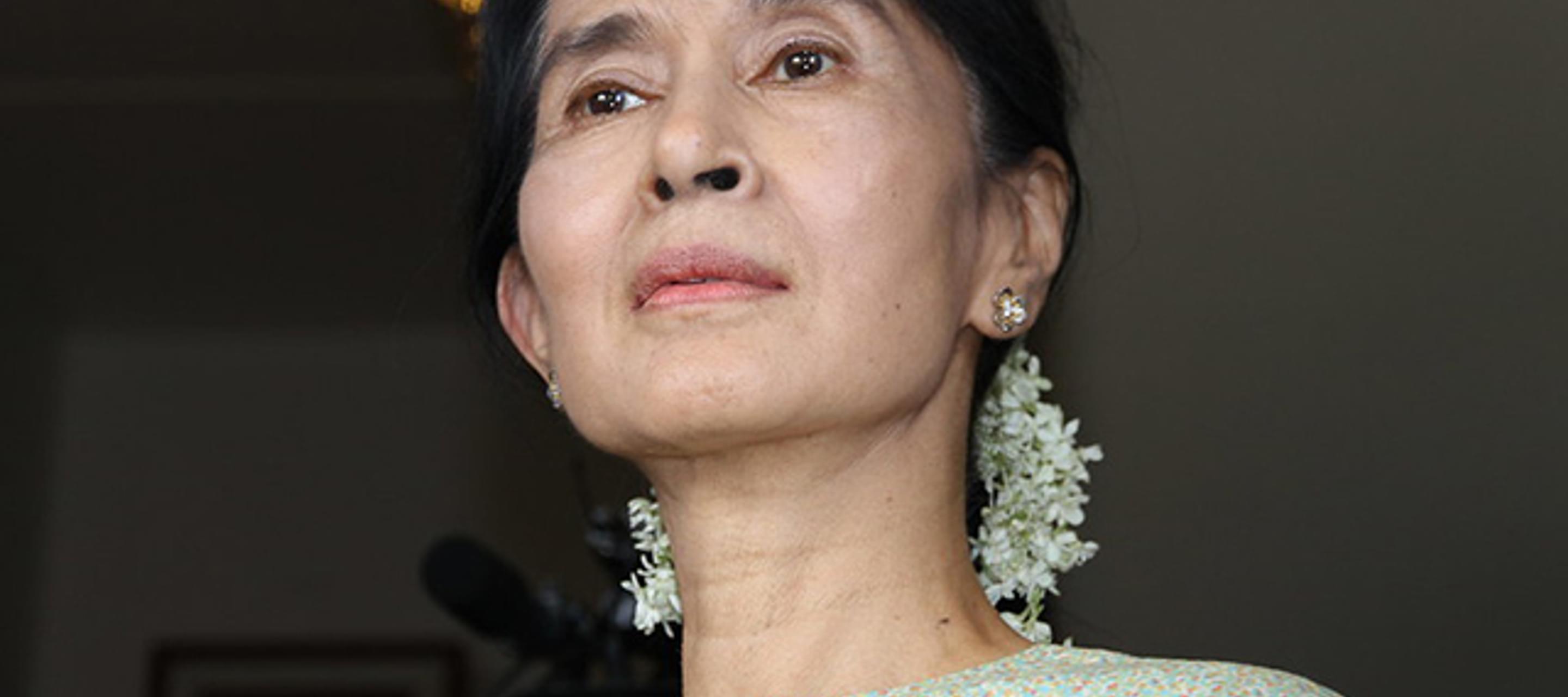Aung San Suu Kyi Signals Change in Burma, but Investors Should Proceed with Caution
19 June 2012

This op-Ed was originally published on Csmonitor.com.
The recent decision by the Obama administration to ease economic sanctions on Myanmar (also known as Burma) presents an important opportunity to reintegrate that country into the international community. But caution is necessary to make sure that the inflow of new investments does not end up harming the country’s long-suffering citizens.
In spite of recent ethnic violence, changes in Myanmar (Burma) over the past year provide reasons for hope. Hundreds of political prisoners have been released from jail, and Nobel Laureate Aung San Suu Kyi, once the country’s most famous prisoner, now sits in parliament. Over the weekend in Oslo, Ms. Suu Kyi accepted the Nobel Peace Prize she was awarded when under house arrest in 1991. Today she is in Britain for the first time in 24 years. And on Wednesday, she will accept the honorary doctorate from Oxford that she was awarded in 1993, also while she was under house arrest.
Under President Thein Sein, Myanmar has made economic reforms a priority and the government has announced plans to set up a press council and abolish media censorship.
These are positive steps, but governments and companies should proceed with caution. Myanmar is a country rich in natural resources, yet poverty persists. Concerns over corruption remain high as can be seen in the Transparency International Corruption Perception Index, which ranks the country third from the bottom in the world.
The rule of law is weak in Myanmar – as seen in the sectarian conflict that erupted in Rakhine last week – and the judiciary is far from independent. The military has a significant stake in many sectors of the economy, and human rights groups have shown conclusively that abusive practices such as forced labor are still widespread.
When the European Union partially lifted sanctions in April, it emphasized the importance for investors to adhere to the highest standards of business practices.
These include the UN Guiding Principles on business and human rights, which were approved unanimously by the UN Human Rights Council in June last year. Those standards also include the OECD Guidelines for Multinational Enterprises and the EU’s new policy for corporate social responsibility, both of which draw on the UN Guiding Principles.
The Guiding Principles were the result of six years of research and consultations with many stakeholders during my mandate as UN special representative on Business and Human Rights. With their adoption, governments have reaffirmed their obligations to protect against human rights abuses involving companies.
The Guiding Principles also clarify that all companies, including those operating in Myanmar, have a responsibility to respect human rights and conduct due diligence to ensure that their activities do not cause or contribute to harm, regardless of the conduct of the state.
In Myanmar’s case, conducting this due diligence on human rights poses a special challenge for companies because Myanmar’s government and local business have been closely intertwined. In such an environment, foreign businesses will need to undertake enhanced due diligence. This includes exercising caution about whom they obtain access to land from, how they gain that access, and how they conduct consultations with affected communities.
It also means ensuring that workers are able to form unions, are paid a fair, legal, living wage, and that no force is used in hiring workers or in their conditions at work.
Companies will also have to take concrete steps to see to it that their partners, local or regional, also adhere to international standards. They must also ensure that these partners are not implicated in any past conduct that may expose investors to complicity risks. Foreign companies need to take effective steps to conduct activities without discrimination, as well, particularly while operating in regions divided by ethnic conflict.
To achieve real progress, governments, businesses, and civil society will have to work together to find a responsible way forward for foreign investment in Myanmar. For starters, that means consulting with local actors as well as assessing potentially adverse human rights impacts on business activities. The home governments of foreign investors should provide clear guidance about the context in which companies will operate, including the human rights risks.
Equally important, home governments should make export finance and investment insurance conditional upon companies undertaking such due diligence and developing mitigating steps in case of potential harm.
Finally, governments, international bodies, and foreign investors must encourage the government of Myanmar to demonstrate its own commitment to more accountable governance.
Such a commitment should include participating in initiatives such as the Extractive Industry Transparency Initiative, which makes public the payments received from oil, gas, and mining companies. Myanmar should also subscribe to the Voluntary Principles on Security and Human Rights, which provide ground rules for the conduct of security forces protecting company installations.
Individually, these cooperative steps toward human rights compliance will be significant; collectively, they offer the potential for making Myanmar an example of how businesses can operate responsibly even in challenging environments.
Photo: Flickr/Utenriksdepartementet UD




